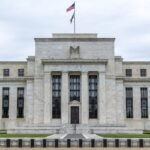Ilya Sutskever and Jan Leike from OpenAI‘s “superalignment” workforce resigned this week, casting a shadow over the corporate’s dedication to accountable AI growth below CEO Sam Altman.
Leike, particularly, didn’t mince phrases. “Over the previous years, security tradition and processes have taken a backseat to shiny merchandise,” he declared in a parting shot, confirming the unease of these observing OpenAI‘s pursuit of superior AI.
Yesterday was my final day as head of alignment, superalignment lead, and government OpenAI?ref_src=twsrcpercent5Etfw”>@OpenAI.
— Jan Leike (@janleike) Might 17, 2024
Sutskever and Leike are the newest entry in an ever-lengthening listing of high-profile shake-ups at OpenAI.
Since November 2023, when Altman narrowly survived a boardroom coup try, no less than 5 different key members of the superalignment workforce have both give up or been compelled out:
- Daniel Kokotajlo, who joined OpenAI in 2022 hoping to steer the corporate towards accountable synthetic common intelligence (AGI) growth – extremely succesful AI that meets or excels our personal cognition – give up in April 2024 after shedding religion in management’s capability to “responsibly deal with AGI.”
- Leopold Aschenbrenner and Pavel Izmailov, superalignment workforce members, have been allegedly fired final month for “leaking” data, although OpenAI has supplied no proof of wrongdoing. Insiders speculate they have been focused for being Sutskever’s allies.
- Cullen O’Keefe, one other security researcher, departed in April.
- William Saunders resigned in February however is outwardly certain by a non-disparagement settlement from discussing his causes.
Amid these developments, OpenAI has allegedly threatened to take away workers’ fairness rights in the event that they criticize the corporate or Altman himself, in accordance with Vox.
That’s made it robust to really perceive the problem at OpenAI, however proof means that security and alignment initiatives are failing, in the event that they have been ever honest within the first place.
OpenAI’s controversial plot thickens
OpenAI, based in 2015 by Elon Musk and Sam Altman, was completely dedicated to open-source analysis and accountable AI growth.
Nevertheless, as the corporate’s imaginative and prescient has expanded in recent times, it’s discovered itself retreating behind closed doorways. In 2019, OpenAI formally transitioned from a non-profit analysis lab to a “capped-profit” entity, fueling issues a few shift towards commercialization over transparency.
Since then, OpenAI has guarded its analysis and fashions with iron-clad non-disclosure agreements and the specter of authorized motion in opposition to any workers who dare to talk out.
Different key controversies within the startup’s brief historical past embody:
- In 2019, OpenAI shocked the AI group by transitioning from a non-profit analysis lab to a “capped-profit” firm, marking an affirmative departure from its founding rules.
- Final yr, stories emerged of closed-door conferences between OpenAI and navy and protection organizations.
- Altman‘s erratic tweets have raised eyebrows, from musings about AI-powered world governance to admitting existential-level threat in a method that portrays himself because the pilot of a ship he already can’t steer.
- In essentially the most critical blow to Altman‘s management up to now, Sutskever himself was a part of a failed boardroom coup in November 2023 that sought to oust the CEO. Altman managed to cling to energy, exhibiting that he’s effectively and really bonded to the corporate in such a method that’s difficult to pry aside, even by the board itself.
Whereas boardroom dramas and founder crises aren’t unusual in Silicon Valley, OpenAI‘s work, by their very own admission, could possibly be crucial for world society.
The general public, regulators, and governments need constant, controversy-free governance at OpenAI, however the startup’s brief, turbulent historical past suggests something however.
OpenAI is turning into the antihero of generative AI
Whereas armchair analysis and character assassination of Altman are irresponsible, his reported historical past of manipulation and pursuit of non-public visions on the sacrifice of collaborators and public belief increase uncomfortable questions.
Reflecting this, conversations surrounding Altman and his firm have turn out to be more and more vicious throughout X, Reddit, and the Y Combinator discussion board.
Whereas tech bosses are sometimes polarizing, they normally win followings, as Elon Musk demonstrates among the many extra provocative varieties. Others, like Microsoft CEO Satya Nadella, win respect for his or her company technique and managed, mature management model.
Let’s additionally acknowledge how different AI startups, like Anthropic, handle to maintain a reasonably low profile regardless of their excessive achievements within the generative AI trade. OpenAI, then again, maintains an intense, controversial gravitas that retains it within the public eye, serving no profit to its picture, nor the picture of generative AI as an entire.
Ultimately, we must always say it how it’s. OpenAI‘s sample of secrecy has contributed to the sense that it’s now not a good-faith actor in AI.
It leaves the general public questioning whether or not generative AI might erode society somewhat than assist it. It sends a message that pursuing AGI is a closed-door affair, a sport performed by tech elites with little regard for the broader implications.
The ethical licensing of the tech trade
Ethical licensing has lengthy plagued the tech trade, the place the present company mission’s proposed the Aristocracy is used to justify moral compromises.
From Fb’s “transfer quick and break issues” mantra to Google’s “don’t be evil” slogan, tech giants have repeatedly invoked the language of progress and social good whereas participating in questionable practices.
OpenAI’s mission to analysis and develop AGI “for the good thing about all humanity” invitations maybe the last word type of ethical licensing.
The promise of a know-how that might resolve the world’s best challenges and usher in an period of unprecedented prosperity is a seductive one. It appeals to our deepest hopes and goals, tapping into the will to go away an enduring, constructive influence on the world.
However therein lies the hazard. When the stakes are so excessive and the potential rewards so nice, it turns into all too simple to justify chopping corners, skirting moral boundaries, and dismissing critique within the title of a ‘better good’ no particular person or small group can outline, not even with all of the funding and analysis on the earth.
That is the lure that OpenAI dangers falling into. By positioning itself because the creator of a know-how that can profit all of humanity, the corporate has primarily granted itself a clean test to pursue its imaginative and prescient by any means crucial.
So, what can we do about all of it? Properly, speak is affordable. Strong governance, steady progressive dialogue, and sustained stress to enhance trade practices are key.
As for OpenAI itself, as public stress and media critique of OpenAI develop, Altman’s place might turn out to be much less tenable.
If he have been to go away or be ousted, we’d need to hope that one thing constructive fills the immense vacuum he’d go away behind.









